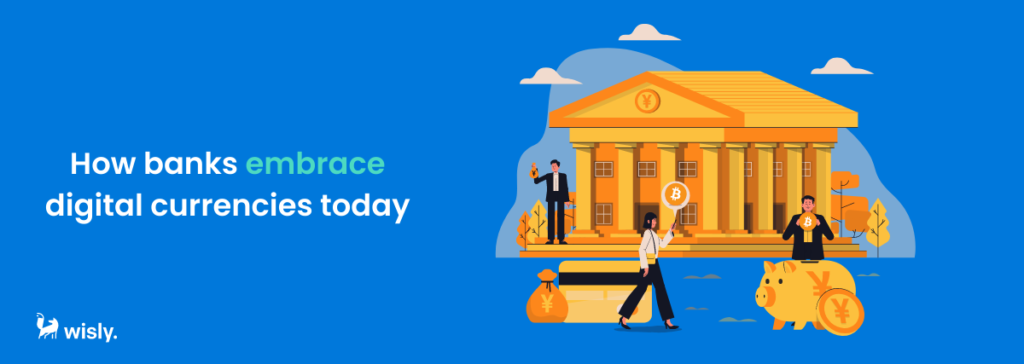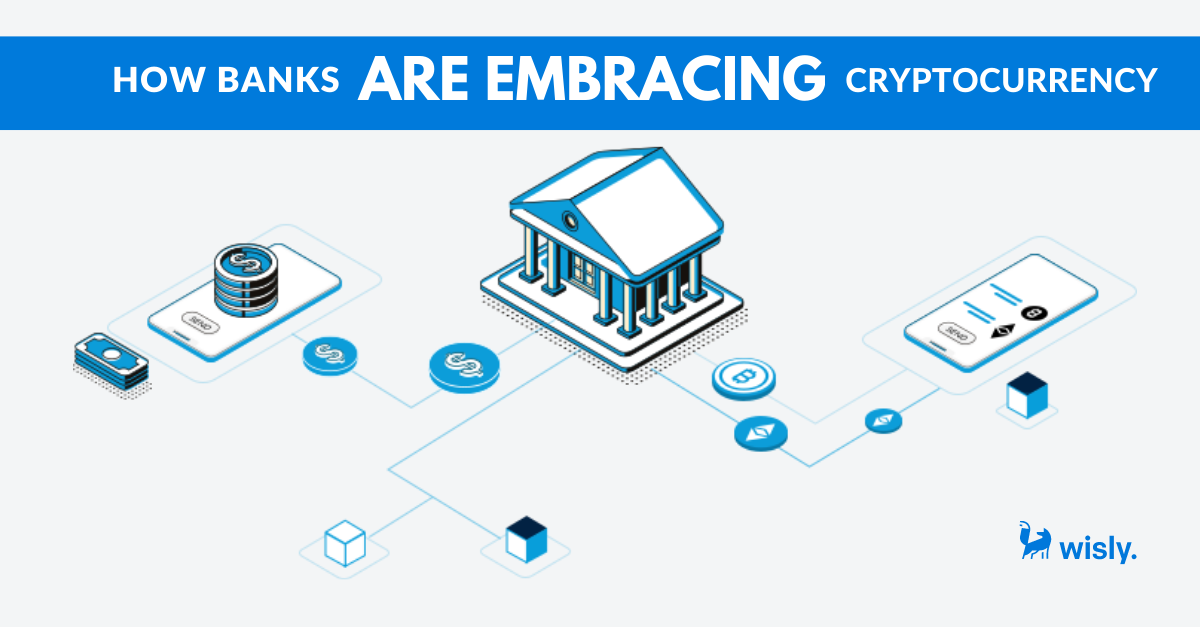When cryptocurrencies were first introduced, banks and financial institutions across the globe were quick to dismiss them and sowed plenty of doubt to dissuade people from engaging with them. New York in 2014 was a classic example of this as financial regulators were looking at ways to control the growing wave of Bitcoin – a disruption to traditional financial institutions.
Initial skepticism from banks

Some executives at the biggest banks in Wall Street feared that regulating cryptocurrencies would indicate that these banks were legitimising them – something that could threaten the ecosystem of the finance industry and traditional banking systems.
Key figures in the banking industry were unequivocal in their disdain for cryptocurrencies, with JP Morgan’s CEO at the time – Jamie Dimon – describing Bitcoin as a terrible store of value that was intended to be used for illicit purposes. Moreover, the finance industry’s pre-eminent lawyer in the US – H Rodgin Cohen – warned New York’s regulators about the concern that the federal government expressed about Bitcoin and its use.
All this criticism was in vain, however, as New York’s Department of Financial Services viewed cryptocurrencies differently. In light of this, they started to issue licenses for Bitcoin businesses in 2015, marking a seismic shift from the traditional way of doing things. Such was the impact of that decision that today we now have more than 220 million cryptocurrency users globally, with that number rapidly growing each passing day.
How banks embrace digital currencies today

While the initial resistance to Bitcoin from traditional financial institutions might have stemmed the tide, it certainly didn’t distract people from exploring digital assets and the plethora of opportunities on offer. The rise of Bitcoin attracted thousands of other cryptocurrencies to the market, together with fresh investments from investors all around the world – a nightmare manifesting for the world’s biggest banks.
With a stark realisation from the banks that cryptocurrencies were not going away anytime soon, banks and financial institutions suddenly found themselves swimming upstream in an effort to catch up with this new world filled with possibilities. Previous criticism was shelved as banks and financial institutions started to explore cryptocurrency offerings and implored regulators to create favourable crypto rules for them.
In a U-turn of epic proportions, bank representatives became critical of financial regulators who were not working quick enough to help banks regulate their crypto services and offering – inactions that were proving to be costly for banks across the globe as investors sought decentralised platforms.
Such an alternate financial world became a massive threat to the traditional financial model as crypto startups were offering loans and credit cards, facilitating cross-border payments, and enabling easy transactions without intermediaries. People appeared to be embracing digital currencies in their droves – in turn, hurting the pockets of banks and financial institutions globally.
With crypto regulations easing favourably in many countries, more and more banks and financial institutions are exploring the potential of blockchain technology and digital assets. Although it has taken time, banks and financial institutions around the world have started to extend their offering with crypto products and services that appeal to the needs of their customers – something they hope would help them to maintain their monopoly.
Many banks and financial institutions have even offered massive bonuses and incentives to attract crypto talent to their organisations – a move designed to better understand the crypto ecosystem and maximise their offering.
The future of banks and cryptocurrency

The crypto boom has become too large to stop with banks and financial institutions realising that they may get left in the cold if they ignore digital assets for much longer. El Salvador’s recent adoption of Bitcoin as legal tender in the country is evidence of how cryptocurrencies can integrate with traditional banking systems with the right support from government and financial regulators.
Zimbabwe is another country looking at introducing cryptocurrency services in the future, while many developing Central and South American countries are looking to emulate El Salvador’s crypto adoption. Countries like China and Nigeria have already introduced their own digital currencies to provide comparable products and services to cryptocurrencies, while many first world nations are looking to do the same.
JP Morgan’s digital currency, Onyx, is backed by the US Dollar and built on technology that mimics the structure of blockchain – further evidence that cryptocurrencies can successfully be integrated with traditional banking systems. Global giants like MasterCard and PayPal have also introduced cryptocurrency services as part of their offering – a move that has proven to be very successful with crypto investors. That’s without even mentioning the growing number of companies around the globe that are extending their offering to cryptocurrency users.
Final thoughts
It’s clear that cryptocurrencies are here for the long haul and while traditional financial institutions have taken time to warm up to these digital assets, they have seemingly swallowed their pride and embraced cryptocurrencies in an effort to appear more appealing to the rapidly growing number of crypto users globally.
The crypto industry and its underlying technology have become too big to ignore, something that traditional financial institutions are quickly adapting to. The future of cryptocurrencies integrating with traditional financial institutions certainly appears to be much brighter!
It’s important to note that investing in cryptocurrencies is a risky and highly speculative proposition. This article does not provide recommendations, advice, or guidance regarding cryptocurrency investments but is rather our opinion on such activities. Investors must conduct their own research and engage in the services of qualified professionals before making any financial and/or cryptocurrency investment decisions. We do, however, recommend established platforms like Wisly to monitor and analyse your crypto investments.




